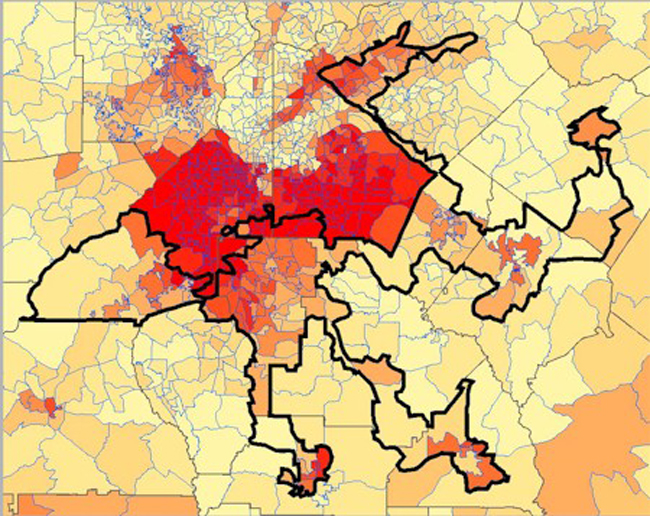
As lawmakers move toward the end of their statewide tour to gather voters’ input on the once-a-decade redistricting process, the timeline for the next step in the redrawing of the state’s political maps is becoming more contentious.
A coalition of voting-rights groups, led by the League of Women Voters and supporters of the Fair Districts amendments, is pushing legislative redistricting committees to move forward with drawing proposed maps as quickly as possible.
Click On:
- Flagler School Board and County Commission Narrow Redistricting Options to Three
- Palm Coast Council Reverses On Redistricting, Enabling Dennis Cross to Stay in the Race
- Palm Coast’s Redistricting McCarthyism: Rowdiness, But Same Disputed Outcome
Critics of the Legislature’s somewhat vague timeline say mass chaos could follow if lawmakers don’t approve maps soon enough to give the attorney general, Florida Supreme Court and Department of Justice enough time to review the plans well in advance of the June 18 opening date for qualifying.
Otherwise, would-be candidates will essentially have qualifying week — from June 18 to June 22 — to look at final maps and decide whether they want to make a bid.
“That’s not an acceptable amount of time for candidates to figure out where their districts are and to start to run,” said Senate Minority Leader Nan Rich, D-Weston.
Instead, voting rights groups are pushing for lawmakers to tee up the redistricting maps for a vote by the Jan. 13 end of the first week of the legislative session.
“We recognize that many measures come out of the Legislature with little or no public input into the final product,” said a letter signed by the League, the NAACP, Common Cause Florida and Hispanic advocacy group Democracia USA. “But redistricting is too important for a ‘Tallahassee special.’ A timeline without the deadlines we suggest is a guaranteed recipe for disaster.”
Members of the league have also showed up at the redistricting public hearings across the state to pound lawmakers for not setting up an early timeline.
After the letter was issued, House Speaker Dean Cannon, R-Winter Park, fired back.
“Given the League’s complete refusal to meaningfully participate in the redistricting process by submitting any proposed maps themselves, this is clearly another politically motivated ruse that attempts to mislead the public and increase the chance the districts will end up being drawn by the courts,” Cannon said.
Supervisors of elections have also raised concerns about the problems that could be caused by maps being finalized in June.
Lawmakers involved in crafting the lines concede that Florida’s process is one of the latest in the nation. But Senate Reapportionment Chairman Don Gaetz, R-Niceville, said that’s because the state is one of the last to receive its redistricting data from the U.S. Census Bureau. And, he said, some of the states that have already drawn lines either hold their elections later this year or rammed through partisan plans.
Legislative leaders also say that they are captives, essentially, of a timeline laid out in the Florida Constitution, which requires them to approve the maps in 2012. House Redistricting Chairman Will Weatherford, R-Wesley Chapel, said last week that supporters of moving the timeline up had an opportunity to do that, if they wanted to.
“It would have been nice if the Fair Districts folks would have put that into the constitution,” he said.
And lawmakers say they’ve done what they can by moving the legislative session up from its traditional starting date in March to January in an effort to pass the maps as quickly as possible.
“Florida did accelerate the process,” Gaetz said. He added that his committee will take up at least some maps during its first pre-session meeting in September.
As for concerns with qualifying, Gaetz noted that candidates can get signatures for their qualifying petitions from any voter in the state of Florida for the 2012 elections — without regard to district boundaries, as is usually the case.
“If you want to run for office in a redistricting year, it’s actually easier to be a challenger and get petitions signed than in any other year,” he said.
But Rich said she was unconvinced, particularly when faced with concerns from elections officials across the state.
“I think that a supervisor of elections of a major county understands more what is needed to pull off an election … in which the state of Florida can be proud,” she said.
–Brandon Larrabee





























Leave a Reply